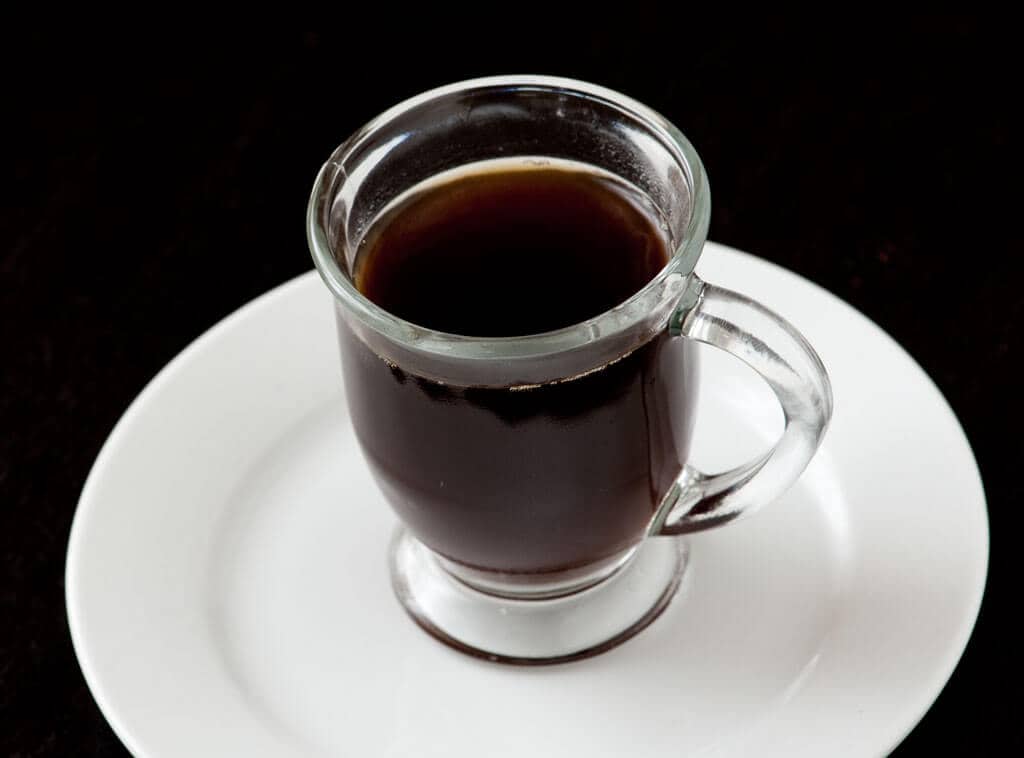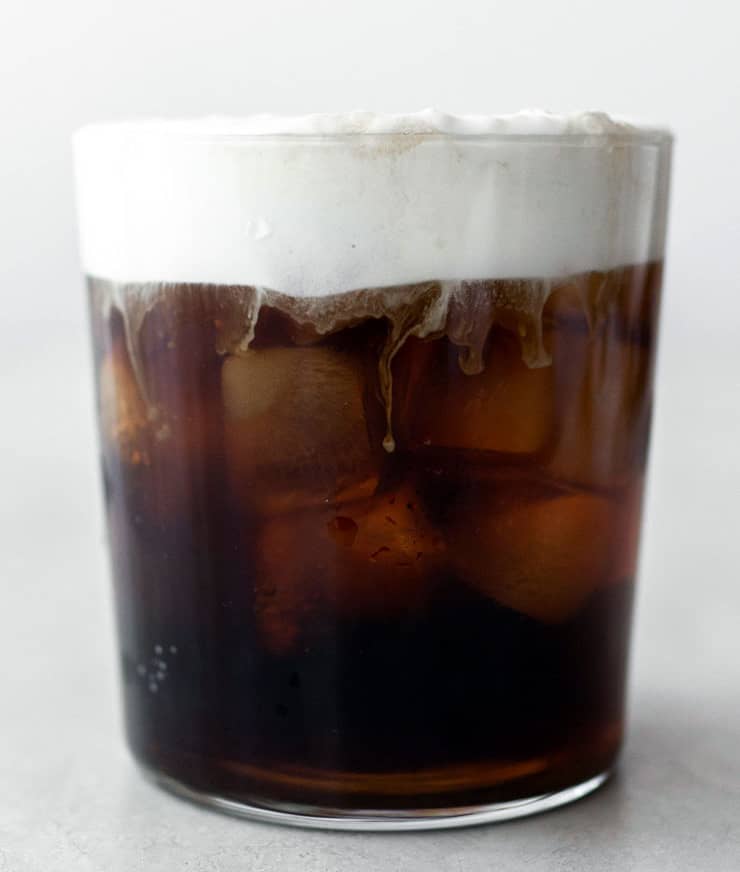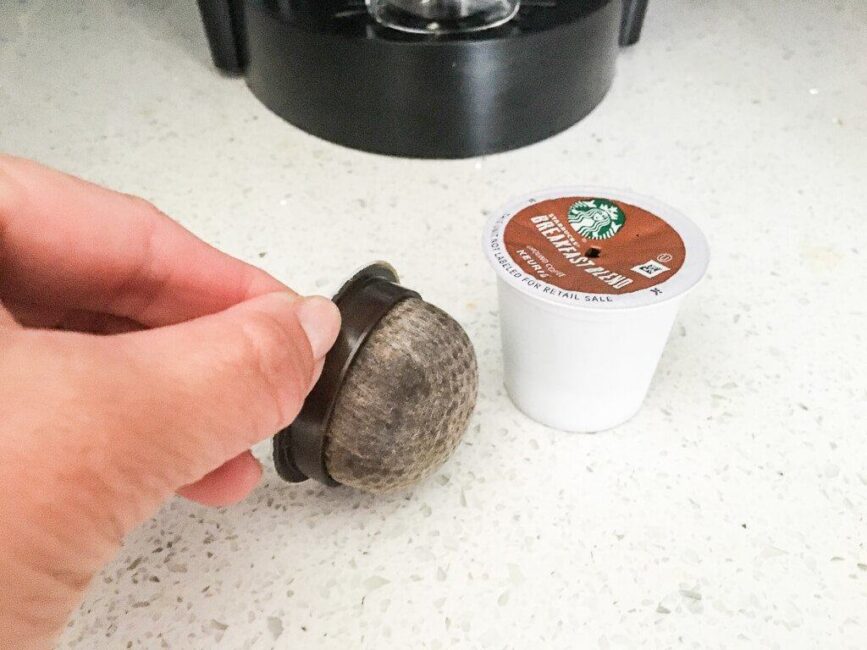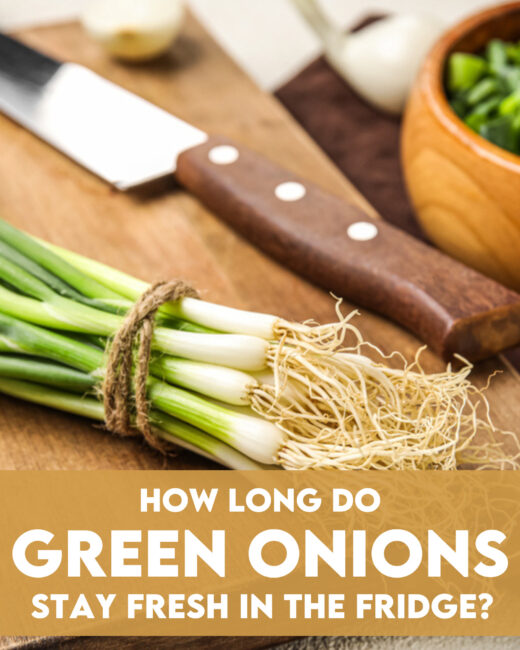Coffee drinkers know the drill. You pour yourself a cup of joe only to realize you’ve brewed enough to caffeinate a small army. Where do you stash the leftovers? In the fridge, of course! So the real question becomes: how long is that java going to stay good for? Let’s find out together!
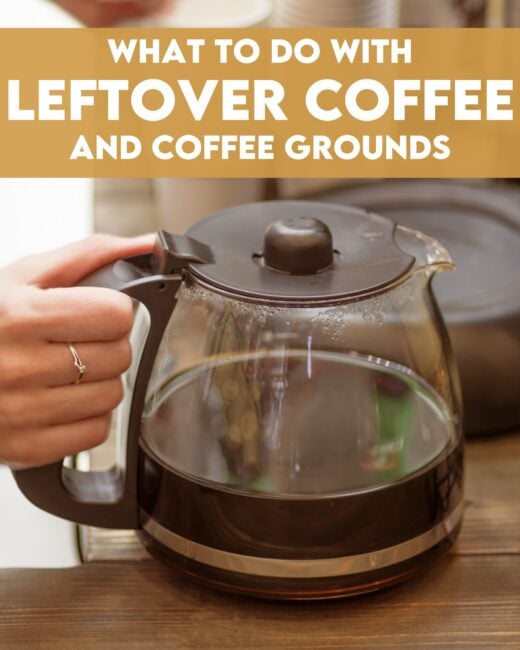
The Short Answer?
How long can your brewed coffee can last in the fridge? Typically, brewed black coffee can last for up to a week when stored in the fridge. But! It’s imperative to note that the taste will begin to deteriorate after a couple of days. For those who love cold-brew coffee, good news! You have a bit longer—up to 2 weeks, in fact. Of course, there’s a world of factors that play into this timeline, so let’s jump right into what affects the shelf life of coffee and the best way to keep that fresh pot fresh.
Factors that Affect the Shelf Life of Coffee
Here’s some info on what can affect good coffee’s longevity, post coffee pot:
- The Brewing Process: How you brew your coffee can affect its taste as it ages. Did you use a regular coffee maker? A French press? Another brewing method? Each technique extracts flavors and oils from the coffee grounds differently. For instance, any hot water brewing method will extract more oils from the coffee beans, resulting in a fuller-bodied brew with a bolder flavor. On the other hand, cold brew coffee extracts fewer oils compared to hot water, so it’s less prone to flavor degradation. And, if you’ve made your cold brew coffee from concentrate, that’s the best way to ensure your coffee lasts its longest and preserve its rich flavor.
- Air & Light: When it comes to coffee degradation, your two worst enemies are oxygen, which causes your coffee to taste stale, and light, which can also cause chemical reactions that change the flavor profile. That’s why we recommend this next tip…
- Proper Storage: Store your brewed coffee in a clean, air-tight container and put it in a dark place, away from direct sunlight and heat sources. It’s an easy way to preserve its flavor and aroma for a longer period of time.
- Additives: Did you add milk to your coffee before you put it in the fridge? What about sugar? These additives can significantly reduce the shelf life of your brew, as they both provide a food source for bacteria and yeast. The best option is to keep it black as long as possible to extend the life of your coffee.
How to Tell if Your Coffee is Bad
Coffee doesn’t always go bad in the same way as most other food items. So, how do you know when your coffee is no longer thriving? Trust your senses. Drinking stale or rancid coffee isn’t just a flavor buzzkill—it can also mess with your stomach, and nobody wants that. Here’s what to watch for:
- Aroma and Taste: To tell if your coffee has spoiled, the first thing to look out for is a significant change in taste or aroma. Freshly brewed coffee will have a rich, aromatic scent. If your cup of joe has a foul or off-putting odor, that’s a clear sign that it’s likely rancid. In the same vein, if the taste of your brew is sour, bitter, or otherwise unpalatable, it’s time to bid that brew adieu.
- Consistency: If you notice ANY changes in consistency, such as slimy or gritty textures, that’s a HUGE red flag. Obviously, if you see visual cues like mold growth or unusual discoloration, that’s a clear indicator to promptly discard that brew.
How to Maximize the Shelf-Life of Coffee
- Storage: Use airtight containers to keep your brewed coffee from air, moisture, and light, especially when you’re storing it in the fridge, to slow down its oxidation process.
- No Additives: Avoid adding milk, cream, or sweeteners to your coffee until JUST before you drink it to prevent expedited spoilage and to maintain its freshness.
- Freezing: If you find yourself with excess brewed coffee, you may consider freezing it. There is some debate on whether or not this is the good idea, as freezing can rob your coffee of its best flavor. However, some people prefer freezing when they’re trying preserve their coffee for a long time. If you do opt for this method of preserving coffee, you can keep brewed coffee in the freezer for up to 2 weeks. When it’s time to thaw your frozen coffee, just transfer it to the fridge overnight. If you’re just looking for a no-waste option, put your leftover coffee into an ice cube tray, and then use those coffee cubes to keep your cold brew cold. That way, you won’t have to worry about regular cubes watering it down!
- Labeling: Don’t forget to label your containers with the date of brewing. This simple step allows you to track freshness and ensure you’re enjoying your coffee at its peak.
Creative Ways to Repurpose Your Coffee
Hate wasting coffee? Me too! Here are some tips for making sure that beautiful brew doesn’t go to waste:
Coffee Syrups and Sauces: Did you know that you can use brewed coffee as a base for syrups and sauces? Just simmer brewed coffee with sugar and spices like vanilla extract and nutmeg to create a unique syrup that you can add to breakfast foods like pancakes or waffles. Or heck, use your homemade syrups to elevate your next morning cup of coffee. Even better: drizzle it over ice cream, or onto baked desserts like cakes and cookies.
Natural Dyes: Looking to repurpose coffee in a non-edible way? If you’re the crafty type, coffee can be used as a natural dye for fabrics or paper, which offers you an eco-friendly alternative to using synthetic dyes. The rich brown hues of coffee create earthy tones, so this technique is perfect for achieving a vintage or rustic look. Simply soak your fabric in a concentrated coffee solution, allow it to dry, and rinse with cold water to set the color!
Gardening Benefits: If you’re a coffee lover, there’s no doubt you’ve got plenty of leftover coffee grounds. Did you know that these are also great for plant lovers? Coffee grounds are rich in nitrogen, potassium, and other minerals, so they make for an excellent natural fertilizer for plants. Simply sprinkle coffee grounds around your plants or mix them into the soil to enrich its nutrients. Coffee grounds also help improve soil drainage and aeration, which promotes healthy plant growth.
Coffee Ice Cubes: Freezing leftover brewed coffee into ice cubes is a clever way to prevent waste and prolong your iced coffee experience. Instead of using regular ice cubes that can water your drink down, pop in some coffee ice cubes! They can be used iced coffee, blended drinks, or even cocktails for a delicious twist.
How to Store Cold Brew Coffee
People everywhere love cold brew coffee for its smooth, rich flavor. And if you want it to last, you have to know how to properly store it to keep its freshness and flavor alive. Here are some tips on how to store your cold brew coffee in the fridge:
Use a Sealed Container: Keep your cold brew coffee in a sealed, airtight container to prevent it from absorbing odors from other foods while in the fridge. A glass container with a tight-sealing lid is perfect for storing cold brew and maintaining its aroma and flavor.
Store it in the Fridge: The cold temperature of your fridge will help slow down the degradation of the coffee’s flavor. Know that if you choose to store it in the freezer, that can alter its taste and texture. The fridge will keep your coffee chilled without compromising its quality.
Use Within a Week: While cold brew can last longer than hot brewed coffee, it’s best to drink it within a week, as the the flavor may start to deteriorate after this point, and the coffee may develop off-flavors. Don’t forget to label your container with the brew date so you can keep track of its freshness.
Shake Before Serving: Before serving your cold brew, always remember to give it a good shake to mix any settled coffee grounds. This will also help distribute the coffee’s flavors evenly.
Enjoy Cold or Hot: Cold brew coffee can be enjoyed cold (over ice) or hot by gently heating it on the stove or in the microwave. Its concentrated flavor makes it a versatile drink, so don’t be afraid to experiment with different serving styles to find your preferred way of enjoying cold brew.
Consider Dilution: Since cold brew is typically stronger than hot brewed coffee, you can melt ice cubes in it to dial in your desired strength. Dilute your coffee with more ice if it’s too strong, and less if it’s just right.
How to Store Coffee Beans
How you store your coffee beans can mean the difference between good coffee and stale coffee. Here are some tips to help you store your coffee beans:
Use an Airtight Container: Be sure to store your coffee beans in an airtight container to protect them from air exposure, which can cause them to oxidize and lose flavor. A container with a one-way valve is the best option, as it allows carbon dioxide to escape without letting any air in.
Keep Them Cool: Store your coffee beans in a cool, dark place and away from heat sources and sunlight, but avoid storing them in the fridge or freezer. The humidity inside your fridge can cause mold growth. Also coffee is porous and can easily absorb other fridge odors. That being said…
Avoid Moisture: Moisture is the enemy of coffee beans, as it can cause them to become stale and moldy. Keep your beans away in a dry place, like your pantry.
Buy in Small Batches: If you want to make sure your coffee beans are fresh, it’s best to buy them in small batches and use them up within a week or two.
Grind Just Before Brewing: For the freshest cup of coffee you can get, grind your beans just before brewing. Grinding exposes more of the beans’ surface area to air, which can result in a quicker flavor loss. Invest in a good quality burr grinder and grind your beans right before brewing for the best results.
Store Away from Strong Odors: Coffee beans can absorb odors from their surrounding environment, so be sure to store them away from strong-smelling foods or items. Keeping them in a separate cupboard or container from other foods might be your best bet.
FAQs:
How long can I keep brewed coffee at room temperature?
Brewed coffee should not be left at room temperature for more than a couple of hours to avoid the risk of bacterial growth. If you don’t plan on drinking your brewed coffee in the moment, it’s best to store it in the refrigerator.
What kind of container should I use for brewed coffee?
A sealed container, like an airtight glass mason jar or a thermal carafe, is great for storing brewed coffee. These containers will help to preserve your coffee’s freshness and prevents it from absorbing fridge odors.
How long does day-old coffee stay fresh in the refrigerator?
Day-old coffee can usually remain fresh in the refrigerator for up to 24 hours. Any longer, and its flavor may start to degrade.
Can coffee connoisseurs usually tell if brewed coffee has been stored improperly?
Avid coffee drinkers are VERY preferential when it comes to their coffee, and as a result, are very keen to anything that isn’t fresh. The general rule imparted by most coffee connoisseurs? “Don’t mess with my coffee!”
And that’s the Brew!
We hope that we answered all your coffee questions and helped you to better understand how to store your brew so that it’s (almost) just as good as when it’s fresh from the pot!
We know every coffee lover’s got a specific way of doing things, so we want to hear from you! What do you do to keep your coffee fresh? What are your favorite coffee additions? What’s your favorite way to use leftover coffee? Do you prefer cold brew or hot brew? What’s your favorite brewing method? Have you ever baked with coffee or made a syrup? Share with us all your favorite things coffee! We always love to hear your take. Leave us a comment.
We here at Steamy Kitchen hope your coffee is always fresh and hot (unless you like it cold), and that your day is filled with magic. Happy sipping!


